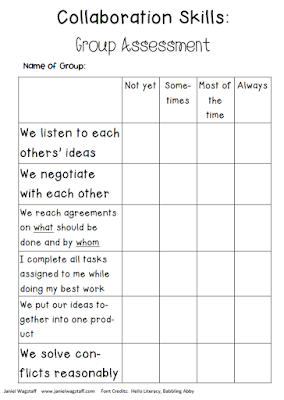Hello!
I'm working on growing my teaching skills for 21st Century Learning. My first formal introduction to such skills was through Tony Wagner's book The Global Achievement Gap and I've recently been reading his Creating Innovators. Additionally, I'm taking courses in the Microsoft Educator Community. Reflecting on how 21st Century Learning is defined (which varies a bit from source to source),* I believe as a teacher of almost thirty years, I've always valued purposeful, student-led learning, collaboration, problem-solving, creativity, and communication. Still, there is a lot to keep thinking about and growing into, especially considering our ever-changing technologies and our students' unprecedented global access. I've just completed a course on collaboration through the Microsoft Educator Community which helped me think deeper about how much of my work with students has truly been as 'collaborative' and 'student-led' as it can be. Yes, I've had students work in groups with what I thought was shared responsibility and choice, but I think I can stretch by giving groups even more decision making power over their content, process, and/or product. Additionally, I'm investigating ways to ensure student collaborative work is 'interdependent'--that they have to rely on one another for the group to succeed and their parts come together into a cohesive whole (whether that's a presentation, event, project, or other). One way to guide these efforts is by having clearly defined goals which I've put together in two 'Collaboration Skills' Rubrics. One is for self-assessment and one is for group assessment. I really prefer working with students to create rubrics or success criteria, but I believe these will remind me of the direction we're going...that is in the direction of more student-responsibility and the active building of collaboration skills. (Obviously, as we work with these rubrics, or something like them, we would have to define what each of these criteria looks and feels like in order for students to be successful. Even so, we teachers have to trust in the process and our students and in the truth that they will grow into these skills with practice. Remember, embrace approximation. Make mistakes, debrief, and learn. That goes for all of us.)
As I work with my K-6 students this year, I'd like to take more risks and give over more of the learning power. When I strive to do this, I'm often surprised and excited about the results.
Here are the rubrics. I'd love some feedback. The google doc link is for both. #happycollaboration #happylearning
https://drive.google.com/file/d/0B1J6IiR6B37WaGxXZWtULW4zTjg/view?usp=sharing

I'm working on growing my teaching skills for 21st Century Learning. My first formal introduction to such skills was through Tony Wagner's book The Global Achievement Gap and I've recently been reading his Creating Innovators. Additionally, I'm taking courses in the Microsoft Educator Community. Reflecting on how 21st Century Learning is defined (which varies a bit from source to source),* I believe as a teacher of almost thirty years, I've always valued purposeful, student-led learning, collaboration, problem-solving, creativity, and communication. Still, there is a lot to keep thinking about and growing into, especially considering our ever-changing technologies and our students' unprecedented global access. I've just completed a course on collaboration through the Microsoft Educator Community which helped me think deeper about how much of my work with students has truly been as 'collaborative' and 'student-led' as it can be. Yes, I've had students work in groups with what I thought was shared responsibility and choice, but I think I can stretch by giving groups even more decision making power over their content, process, and/or product. Additionally, I'm investigating ways to ensure student collaborative work is 'interdependent'--that they have to rely on one another for the group to succeed and their parts come together into a cohesive whole (whether that's a presentation, event, project, or other). One way to guide these efforts is by having clearly defined goals which I've put together in two 'Collaboration Skills' Rubrics. One is for self-assessment and one is for group assessment. I really prefer working with students to create rubrics or success criteria, but I believe these will remind me of the direction we're going...that is in the direction of more student-responsibility and the active building of collaboration skills. (Obviously, as we work with these rubrics, or something like them, we would have to define what each of these criteria looks and feels like in order for students to be successful. Even so, we teachers have to trust in the process and our students and in the truth that they will grow into these skills with practice. Remember, embrace approximation. Make mistakes, debrief, and learn. That goes for all of us.)
As I work with my K-6 students this year, I'd like to take more risks and give over more of the learning power. When I strive to do this, I'm often surprised and excited about the results.
Here are the rubrics. I'd love some feedback. The google doc link is for both. #happycollaboration #happylearning
https://drive.google.com/file/d/0B1J6IiR6B37WaGxXZWtULW4zTjg/view?usp=sharing
*Depending on the source, 21st Century Learning Skills include: collaboration, critical thinking, problem solving, creativity and innovation, communication, self-direction, visual learning, information literacy, and global and cultural awareness.

















Thank you !
ReplyDelete